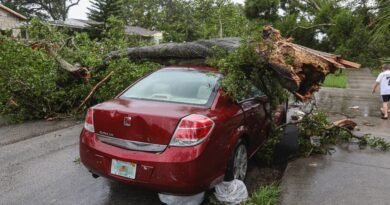Bluefire Wilderness Lawsuit: Understanding the Legal Battle
Bluefire Wilderness, a renowned name in wilderness therapy, finds itself entangled in a legal battle that has captured public attention and raised significant concerns. Let’s delve into the details of the lawsuit, its implications, and the responses from both the company and the public.
Background of Bluefire Wilderness
Established with a mission to provide therapeutic wilderness experiences for struggling adolescents, Bluefire Wilderness has been a trusted institution for families seeking support for their troubled youth. With a focus on personal growth, emotional healing, and academic success, the organization has garnered praise for its innovative approach to therapy.
Nature of Lawsuit
Allegations
The lawsuit against Bluefire Wilderness alleges misconduct and negligence in the treatment of participants, ranging from issues related to safety protocols to allegations of emotional and physical abuse. These accusations have cast a shadow over the reputation of the organization and sparked widespread debate within the community.
Defendants
Among the defendants named in the lawsuit are former staff members and administrators of Bluefire Wilderness, along with the organization itself. The legal battle involves multiple parties, each presenting their side of the story in a complex legal landscape.
Legal Proceedings
Court Jurisdiction
The lawsuit is being adjudicated within the jurisdiction where Bluefire Wilderness operates, adding an additional layer of complexity to the case. Legal experts are closely monitoring the proceedings, anticipating significant implications for both the organization and the broader wilderness therapy industry.
Timeline of Events
The timeline of events leading up to the lawsuit provides crucial context for understanding the allegations and the responses from all involved parties. From initial complaints to the filing of legal action, each step in the process contributes to the evolving narrative surrounding Bluefire Wilderness.
Impact on Bluefire Wilderness
The lawsuit has had profound ramifications for Bluefire Wilderness, affecting its operations, reputation, and relationships with clients and stakeholders. The organization faces the daunting task of addressing the allegations while maintaining its commitment to providing quality care for its participants.
Public Perception and Media Coverage
Public perception of Bluefire Wilderness has been shaped by media coverage of the lawsuit, with headlines highlighting the controversy and raising questions about the efficacy of wilderness therapy programs. The organization must navigate the delicate balance between defending its practices and addressing legitimate concerns raised by the public.
Responses from Bluefire Wilderness
In response to the lawsuit, Bluefire Wilderness has issued statements reaffirming its commitment to participant safety and well-being. The organization has implemented measures to address the allegations and has pledged to cooperate fully with legal authorities in resolving the matter.
Potential Resolutions
As the legal battle unfolds, various potential resolutions are being explored, including out-of-court settlements, arbitration, and litigation. The ultimate outcome of the lawsuit will have far-reaching implications for Bluefire Wilderness and the wilderness therapy industry as a whole.
Lessons Learned
The lawsuit against Bluefire Wilderness serves as a stark reminder of the importance of adhering to ethical standards and regulatory guidelines in the provision of wilderness therapy services. It underscores the need for rigorous oversight and accountability to ensure the safety and well-being of participants.
Similar Cases in the Industry
The allegations against Bluefire Wilderness are not isolated incidents, with similar cases of misconduct and negligence reported in the wilderness therapy industry. These cases highlight systemic issues that warrant closer scrutiny and action from regulatory authorities and advocacy groups.
Importance of Legal Compliance in Wilderness Therapy
The legal battle facing Bluefire Wilderness underscores the critical importance of legal compliance in the delivery of wilderness therapy services. Organizations must prioritize adherence to industry standards and best practices to mitigate risks and safeguard the interests of their participants.
Rebuilding Trust and Reputation
In the aftermath of the lawsuit, Bluefire Wilderness faces the daunting challenge of rebuilding trust and restoring its reputation within the community. Transparent communication, accountability, and meaningful reforms will be essential in regaining the confidence of clients, families, and stakeholders.
Conclusion
The Bluefire Wilderness lawsuit represents a pivotal moment for the organization and the wilderness therapy industry as a whole. As legal proceedings continue, the outcome will shape the future landscape of wilderness therapy and underscore the importance of ethical practices and accountability.
FAQs
What is the Bluefire Wilderness lawsuit about?
- The lawsuit alleges misconduct and negligence in the treatment of participants in Bluefire Wilderness programs, raising concerns about safety and ethical practices.
How did the lawsuit impact Bluefire Wilderness?
- The lawsuit has had profound ramifications for Bluefire Wilderness, affecting its operations, reputation, and relationships with clients and stakeholders.
Are there any similar cases in the wilderness therapy industry?
- Yes, similar cases of misconduct and negligence have been reported in the wilderness therapy industry, highlighting systemic issues that warrant closer scrutiny.
What steps is Bluefire Wilderness taking to address the allegations?
- Bluefire Wilderness has implemented measures to address the allegations and has pledged to cooperate fully with legal authorities in resolving the matter.
How can clients affected by the lawsuit seek recourse?
- Clients affected by the lawsuit can seek recourse through legal channels, including pursuing compensation for damages and holding responsible parties accountable for their actions.




